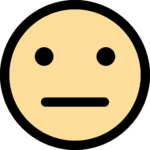
Click on ‘Explanation about the score’ sign next to each entry to expand and learn more.
The company should publicly commit to human rights in relation to product development and marketing, by adopting an official human rights policy statement recognising the right to the highest attainable standard of health. The company should endeavour to integrate human rights into its strategies, policies, programmes, projects, and activities.
The company should also have a publicly available global access plan for their Covid-19 product, based on human rights standards, with measurable targets and lines of accountability.
Janssen has a general section on access and pricing principles for its products.
Janssen previously published a page on ‘access arrangements for Janssen Covid-19 Vaccine’, which includes providing the vaccine on a not-for-profit basis during the emergency pandemic period and supplying COVAX with 500 million doses through 2022. It also has made a deal with Aspen pharmaceuticals, based in South Africa, “to enable the first COVID-19 vaccine to be manufactured and made available by an African company for people living in Africa, with the goal of increasing COVID-19 vaccination rates across the continent.” This page has since been moved to a different article which explains Janssen’s response to the pandemic in different areas of the world.

J&J states that it is guided by the United Nations Guiding Principles on Business and Human Rights, the Universal Declaration on Human Rights, the International Covenant on Economic, Social and Cultural Rights, among others.

The company should constructively engage with international initiatives for the equitable distribution of vaccines and therapeutics, such as the Covid-19 Technology Access Pool (C-TAP) or the Medicines Patent Pool (MPP), and the ACT Accelerator (COVAX). The company should also publicly commit to not enforcing the exclusive rights of Covid-19 related patents, and enter into non-exclusive, transparent licensing agreements for its Covid-19 products with other companies.
J&J has not committed to C-TAP or the MPP.

J&J has not made a commitment not to enforce patents (see J&J’s Statement on Intellectual Property Rights)
In its response to our questionnaire, J&J states: “In addition to our existing manufacturing capacity in Leiden, the Netherlands, we have entered into agreements to expand our manufacturing capability to support the manufacturing of our COVID-19 vaccine. Our COVID-19 manufacturing collaborations each include a license to our technology and the sharing of manufacturing know-how to enable the safe and high-quality production of our vaccine and to activate our manufacturing on a global scale as soon as possible.”

J&J has delivered 200 million doses to COVAX. It also stated in its response to our questionnaire: “To date, Johnson & Johnson has shipped more than 260 million vaccine doses to Africa through a combination of our advance purchase agreements with the African Vaccine Acquisition Trust, South Africa and Gavi, the Vaccine Alliance, on behalf of the COVAX Facility, along with government donations. As one of our contract manufacturers since November 2020, Aspen has been a significant supplier within the Johnson & Johnson global network.”

As stated in its response to our questionnaire, J&J has entered into manufacturing agreements with Biological E Limited in India and Aspen Pharmacare in South Africa: “We are working with various manufacturing partners on global production of the Johnson & Johnson COVID-19 vaccine. In March 2022, we announced the completion of a landmark agreement with Aspen Pharmacare in South Africa to enable the first COVID-19 vaccine to be manufactured and made available by an African company for people living in Africa, with the goal of increasing COVID-19 vaccination rates across the continent.”

The company should engage in efforts to further equitable distribution of Covid-19 vaccines/therapeutics, by equitably distributing its supplies globally, devising fair pricing strategies, and making the active ingredient for its product available to other manufacturers. The company should also engage in full technology transfer to other manufacturers, including the necessary transfer of skills, legal components, knowledge and intellectual property. Where applicable, the company should agree to waive rights in regulatory test data, and refrain from enforcing TRIPS+ measures.
[Only applies to therapeutics]
J&J has signed an agreement with the South African firm Aspen in March 2022 to produce 300 million doses on the African continent. It stated in response to our questionnaire: “We have entered into multiple manufacturing agreements, including in India (Biological E Limited) and South Africa (Aspen Pharmacare), to expand our global manufacturing network and increase our capacity to deliver the highest quality COVID-19 vaccine on a global scale. Our agreements with these organizations provide a license to our COVID-19 vaccine IP and include a technology transfer mechanism to facilitate the sharing of confidential manufacturing know-how, to enable each organization to contribute to our global supply network.”
J&J’s Statement on Intellectual Property Rights states: “We believe that voluntary technology transfers between vaccine manufacturers and carefully selected partners is the most practical, efficient and effective way to expand the global production of COVID- 19 vaccines […] Making IP available to additional manufacturers in an arbitrary and blanket fashion will not shorten the time it takes to get a vaccine to market. To the contrary, the rapid entry of multiple inexperienced manufacturers and production sites unable to manufacture at sufficient scale would further strain existing supply chains, and it could potentially undermine consumer safety. Most importantly, taking such a step is not actually needed. Global manufacturing capacity for COVID-19 vaccines has come online with unprecedented speed. More than 11 billion doses of vaccine were produced by the end of 2021, and today, industry globally is able to produce over a billion vaccines a month.”
J&J stated in its response to our questionnaire: “At every step of the way, Johnson & Johnson’s response to COVID-19 has been enabled by IP. We simply would not have a vaccine, nor would we be able to scale up production, without a reliable IP framework.” and that “we believe that voluntary technology transfers between vaccine manufacturers and carefully selected partners is the most practical, efficient and effective way to expand the global production of COVID19 vaccines.”

J&J sold the vaccine at a non-profit price for the duration of the pandemic. It is expected to shift away from this model at the end of this year or in early 2023.
J&J stated in its response to our questionnaire: “Johnson & Johnson remains committed to ensuring global access to our COVID-19 vaccine. We believe this is best achieved during 2022 by maintaining a single affordable global price. This ensures all countries can access the Johnson & Johnson COVID-19 vaccine at the same affordable price.”

In their response to our questionnaire, the company states that in 2021 alone, J&J sold approximately 70% of their global vaccine supply to low- and middle-income countries, when including APAs and country donations.

J&J has not made a commitment to enforce TRIPS-. See J&J’s Statement on Intellectual Property Rights.

No information was found on this criterion.

The company should be as transparent as possible, by publishing its research and development costs, profit margin, average costs of production, and production capacity for its Covid-19 product. It should also disclose the amount of public subsidies received during product development and/or testing. Licensing agreements should also be made publicly available and clinical trials should be registered in public repositories.
J&J published its financial reports for each quarter of 2021 (14.714 million US dollars in research and development costs forJ&J claims it will not make any profit from its vaccine, and uses the WHO model to ensure the non-profit price. Its net earnings for 2021 amounted to 20.878 million US dollars, but J&J does not specify how much profit it made from the Covid-19 vaccine, although it does state that sales of the Covid-19 vaccine contributed to growth. 2021), but these are not specific to Covid-19 vaccine.

J&J claims it will not make any profit from its vaccine, and uses the WHO model to ensure the non-profit price. Its net earnings for 2021 amounted to 20.878 million US dollars, but J&J does not specify how much profit it made from the Covid-19 vaccine, although it does state that sales of the Covid-19 vaccine contributed to growth.
See: Hannah Kuchler, ‘Johnson & Johnson Chief Looks to the Greater Good’ (Financial Times, April 4 2020), de Balie, ‘Turning Tables: Een Vaccin voor Iedereen?’ (de Balie, 07 December 2020), David Mitchell, ‘A Not-For-Profit Vaccine from Johnson & Johnson? Not So Fast’ (Patients for Affordable Drugs, 28 April 2020)

The average and/or marginal costs of producing the vaccine are not published.

J&J states in its response to our questionnaire: “Johnson & Johnson continues to focus on ensuring our COVID-19 vaccine is available where people are in need. We currently have tens of millions of doses available for people around the world.”
It has since, however, paused production – at the expense of poorer countries which are depending on it.

J&J mentions the amount of US BARDA funding in a press release. Janssen VP Bert van Zijll stated that J&J is financing half the R&D of the vaccine itself and that the other half is funded by US Barda. He stated that J&J receives no funding from EU governments.
J&J stated in its response to our questionnaire: “We publish the total awards of public subsidies we received for the COVID-19 vaccine program, see https://www.jnj.com/media-center. In addition to specific partnership-related announcements, we acknowledge U.S. government funding in relevant media materials.

J&J has not published the texts of any licensing agreements.

J&J has registered its clinical trials in the EU Clinical Trial Register.

Never miss an update from the Pharmaceutical Accountability Foundation!